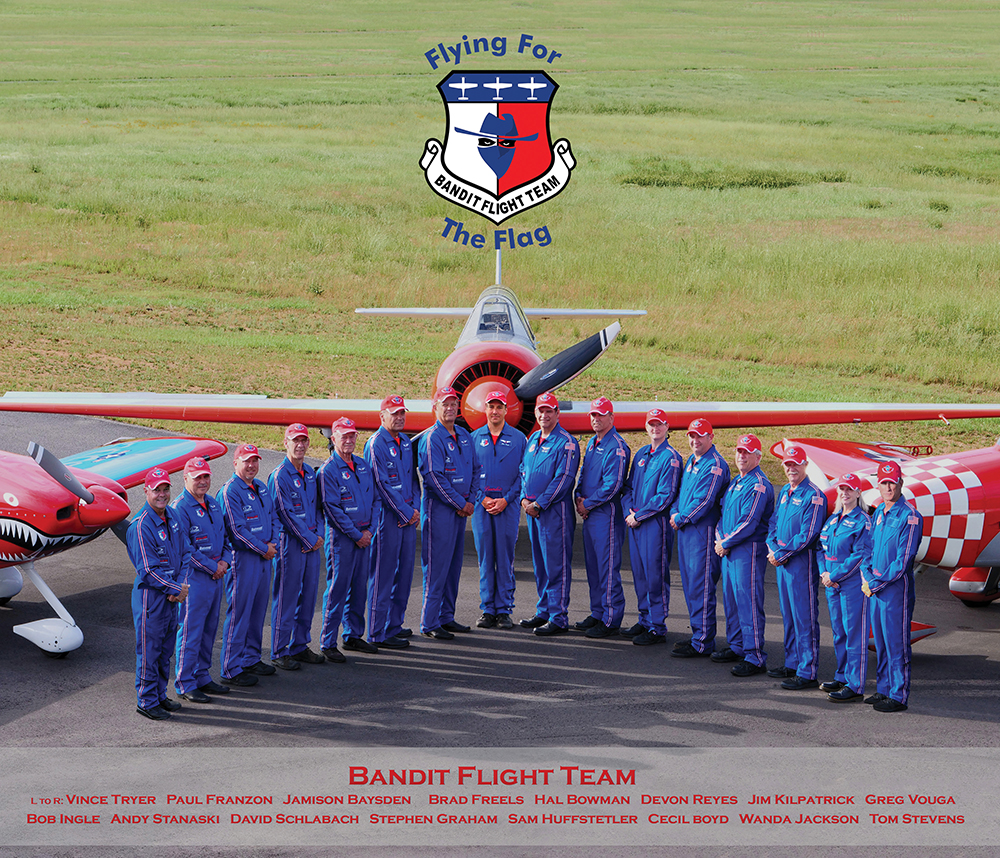Discipline, experience and a strong bond unite this crew of pilots
by Finn Cohen
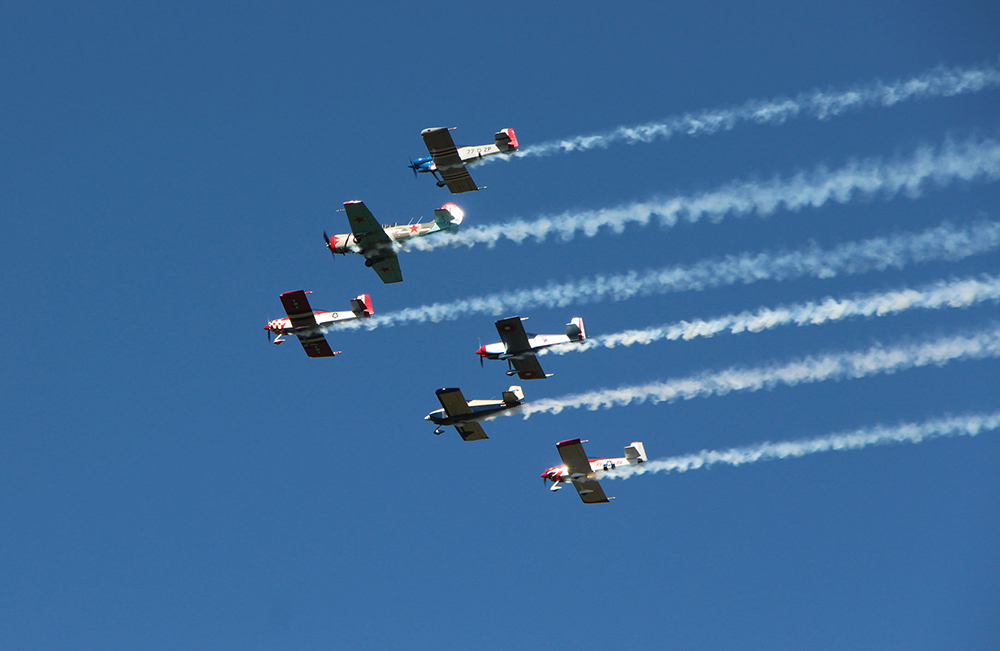
In fall of 2014, Bob Ingle was sitting in the stands of Carter-Finley Stadium with a friend before a North Carolina State University football game, listening to the National Anthem. As the song reached its trademark crescendo, he looked up — and saw a group of familiar planes flying in formation over the crowd.
Ingle, a 22-year Air Force veteran who flew combat missions in Operation Desert Storm and Operation Iraqi Freedom, flew the same model of aircraft, an RV-8A, for fun near his home in Goldsboro. His interest was piqued, but after six months of finding no information about the flight team, he gave up.
The following May, Ingle was at an airshow at Goldsboro’s Seymour Johnson Air Force Base and ran smack into a few members of the group he’d been seeking: the Bandit Flight Team, a coterie of vintage aircraft enthusiasts.
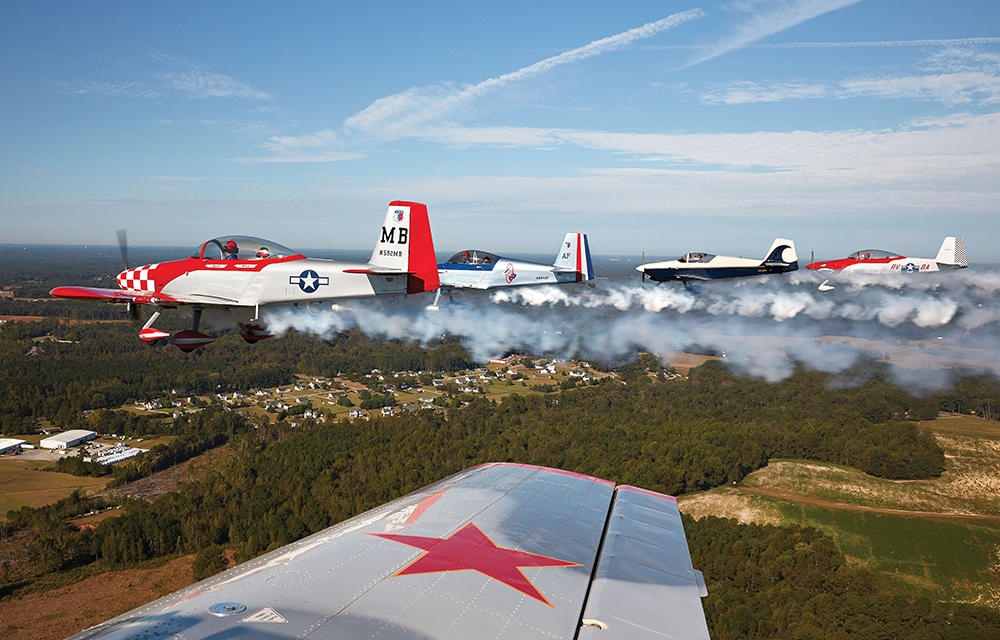
“And lo and behold, they’re like, Hey you got an RV? We need a couple more pilots to fill our team. You interested?” Ingle says. “I’m like, Dude I’ve been looking for you! It was an incredible moment.”
These days, Ingle is a lead pilot for the Bandit team, a 17-member squad that flies out of Sanford’s Raleigh Executive Jetport. The group, which formed in 2009 with just four members, claims to be the most active flight team in the United States, with more than 50 events a year. Almost all of them are in North Carolina — Durham Bulls games, NASCAR races, charity events and military ceremonies.
The Bandit team doesn’t do any barrel rolls or flips (aerobatics, in the industry parlance). Their specialty is flying in tight formation over events with extremely precise timing and coordinated smoke trails. For those N.C. State games, at which Bandit has appeared since 2012, they line up two minutes away from the stadium with the intent of appearing exactly as the National Anthem ends. Seems simple enough, but at 120 miles per hour, those two minutes involve a lot of planning.
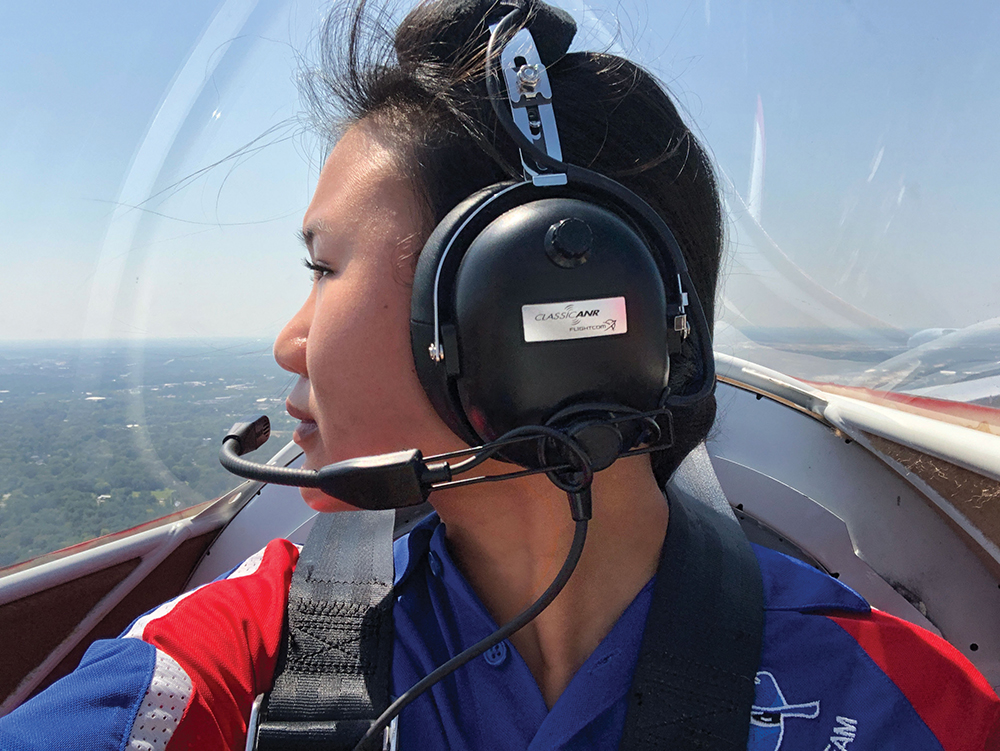
“You can’t stop six planes in the air and they just park,” says Wanda Jackson, one of the Bandit ground coordinators. “They are flying around in figure eights in the sky, just waiting for the right time to fly over — the more they know in advance what to expect, the better it is.”
Jackson, an accountant who worked for American Airlines for years in Cary before getting a pilot’s license, is part of the eyes and ears for the team on the ground. When she hears the anthem start, she gives the go-ahead. Like Ingle, she had a chance encounter that led to her joining the Bandit group: she crossed paths with several of the pilots at a picnic in Sanford in 2017. After accepting their invitation to fly along one day, she was hooked.
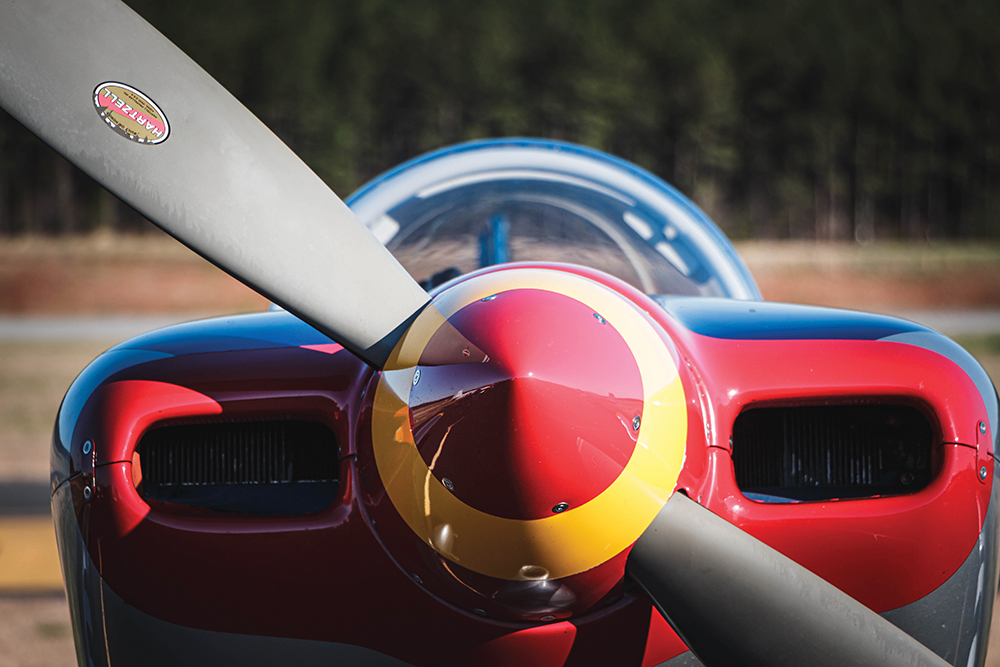
“I had done aerobatics — taken some aerobatic training in Florida — and I thought that was exciting,” Jackson says. “But flying in formation was way more exciting: you spend all your time as a pilot trying to stay away from other airplanes. The first time you fly in formation, and you’re that close to somebody else, it’s really freaky.”
Behind each of those few minutes in the sky are combined lifetimes of training. Each member of the team has a commercial pilot’s license, and many of them served in the military and/or as commercial pilots. They have dedicated training sessions a couple times a year as a group, but for the most part, their collective experience and disciplined bond as a team make each appearance run smoothly. Ingle, as the team’s lead, acts as their glue at 1,000 feet.
“He decides where we’re going to turn, when we turn, what our track is — he makes all the decisions because all the other members are maintaining position off of him,” says Jim Kilpatrick, a retired Air Force pilot and 34-year veteran of American Airlines. “If they look away, and he makes a turn, we all run into each other. We have a saying: If he’s got a flight of six and he runs into the side of the mountain, there better be five holes right with him. They won’t even see the mountain coming because they’re staring at him.”
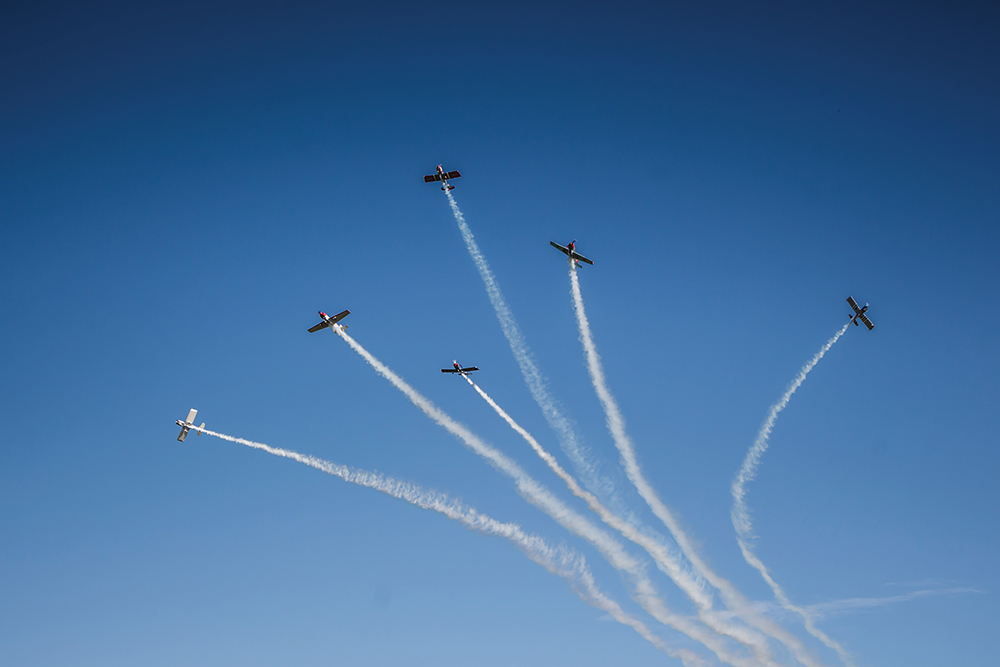
Kilpatrick, one of the founding members of Bandit, helped get the word out initially by doing some cold-calling to concerts and events: “Would you like a flyover?” A neighbor made some connections to the N.C. State athletic department, which got the ball rolling for larger events. Now the team’s schedule is packed, which is a benefit for its pilots, because the upkeep for those planes — some of which the members have built themselves — gets expensive pretty quickly.
“We have a really good group of pilots that are willing to donate their time and effort to fly this. For them their logic is, Well, I’m paying for the maintenance, and I’m paying for the hangar and insurance — all the fixed costs,” Kilpatrick says. “Without a doubt it is a huge, huge labor of love for everybody.”
